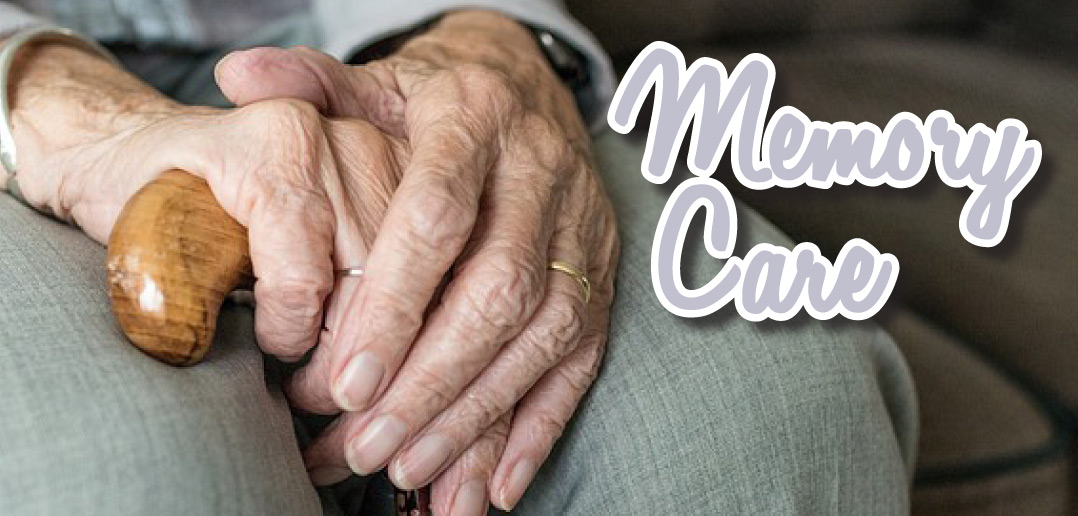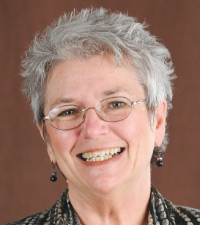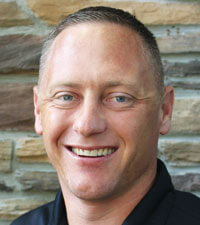Memory Care in Omaha, NE – 2018
5 THINGS TO KNOW ABOUT MEMORY LOSS
The hardest truth to accept is that with Alzheimer’s and dementia, and other diseases that cause a decline in memory, thinking, and reasoning skills, it doesn’t get easier as time goes on. Most people get defeated when they realize how overwhelming it can be, some even go into denial. That is why we’re here to tell you that it’s okay to be scared, it’s okay to not have all the answers, and it’s okay to reach out for help.
The good truth is that you are not alone. There are many people who are willing to lend an ear and a hand to help families impacted by Alzheimer’s and dementia. However, even though there are similarities between people with dementia, there are also vast differences. People may be at the same stage but respond very differently. There isn’t a textbook explanation for out how things will unfold. As a family member, you have to be able to make tough decisions, but you also have to allow your loved one to forge their own way and come along side of them. If you understand that things are going to be constantly changing, then it will help minimize potential frustration as things progress.
There isn’t a clear step-by-step plan for dealing with memory loss, but there are some main, basic things everyone should know about it. Even if it isn’t affecting a person directly at a given time, chances are it will one day.
With the help of a couple local experts, we put together a list of five things we think our readers should know about identifying, addressing, treating, and living with memory loss.
1. Early Warning Signs
Early warning signs are often difficult to identify and can often be attributed to the normal process of aging. Unfortunately, since no two presentations of dementia are the same, early detection is tricky and, therefore, people are often well into the disease before they seek help.
The very earliest changes in the brain go undetected. Alzheimer’s and other forms of dementia can be categorized into seven stages; from the earliest stage when no outward signs are present, to the last stage when the individual is no longer able to communicate basic human needs. Within these stages, symptoms include:
- Difficulty completing routine tasks at home or work
- Problems arising with speaking or writing
- Trouble understanding visual images
- Inability to retrace steps
- Frequently misplacing things
- Poor judgment
- Changes in mood and personality
- Withdrawal from social activities
The rate at which people progress through the stages is very difficult to predict and their exact symptoms will vary based on which area of the brain is most affected by the plaques that accumulate. It is important to understand that these plaques create a roadblock of sorts and the brain has no way around them. The neurological system literally stops there. It is widely held that most individuals will live five to seven years following diagnosis. Again, this depends on the individual—what stage of the disease they were in at the time of diagnosis, their unique disease progression, and any pre-existing, underlying medical conditions they may have.
“Bridge to Better Living often recognizes signs of memory loss in their clients, sometimes even before family members recognize the symptoms,” states Robbie Nathan with Bridge to Better Living. “Memory loss carries a stigma for many and yet it is a diagnosis affecting 1 in 10 over the age of 65 and 1 in 3 over the age of 85. Symptoms of dementia or Alzheimer’s may be very subtle; misplacing possessions, forgetting appointments, not recognizing everyday objects or giving evasive answers to direct questions. Frequently families unknowingly cover for their loved ones… ‘They do really well as long as…’ or ‘We call every day to remind them of their meds or to see if they have eaten.’ Although these actions are caring they are also enabling and a clear sign the family is concerned about their loved one’s ability to remember.”
Bridge to Better Living believes in their mission of “Placement with Passion” when working with each client and especially those with memory loss. Every one of the transition consultants has had professional and personal experience with this terrifying disease. No two situations are the same. The safety and care of these clients is a high priority. Bridge to Better Living understands the magnitude of being cared for in the right way, by the right people, and in the right place, which is why they offer assistance at no cost to the client.
2. First Steps To Take
Sometimes, the person who is actually experiencing memory loss deals with the idea of dementia better than the family members. It’s not easy for loved ones to face the reality of what these signs mean. The family doesn’t want to admit that there is a problem, especially if the dementia hits at an earlier age, such as in a person 60’s Denial is very common and, like a death, there are many stages of grief in recognizing, dealing with, and finally accepting the outcome.
On the other end, it is the individual experiencing these symptoms who has the hardest time accepting them. Imagine how frustrating it would be to have difficulty doing things that once came easy for you, such as balancing a checkbook and solving simple math problems. Not only is it scary, it’s embarrassing.
 “It is not uncommon for someone struggling with memory issues to have a lot of mood swings or depression in the early stages,” addresses Gayleen Bradley with Care Consultants for the Aging. “There is a lot of shame associated with memory loss. Your loved one might become combative when you point out the warning signs you’ve noticed. These are things they don’t want to see in themselves. When addressing memory deficiencies and concerns, do it in a very calm, loving, and reassuring way, and be very intentional about getting help. Talking about an issue doesn’t do much good without an action to follow.
“It is not uncommon for someone struggling with memory issues to have a lot of mood swings or depression in the early stages,” addresses Gayleen Bradley with Care Consultants for the Aging. “There is a lot of shame associated with memory loss. Your loved one might become combative when you point out the warning signs you’ve noticed. These are things they don’t want to see in themselves. When addressing memory deficiencies and concerns, do it in a very calm, loving, and reassuring way, and be very intentional about getting help. Talking about an issue doesn’t do much good without an action to follow.
This can be the hardest first step—getting the individual to agree to see a doctor in order to get an official diagnosis. Comfort your loved one by acknowledging that there could be a host of different issues going on which could be cleared up by seeing a doctor. It could be there is a medication interaction, excessive alcohol use, an infection, a metabolic disorder such as diabetes, even untreated depression can be very taxing on the brain. No one is asking anyone to assume the worst.
If there is a diagnosis of dementia, educate yourself. Join a support group, if possible. Letting other family members be a part of the process can be very beneficial, as well, especially if you are the main care partner. The journey will become very overwhelming alone. People who don’t reach out and get help tend to become ill themselves from the stress they are under and then end up in a crisis.
My father has dementia and lives with one of my sisters in Colorado. The stress this journey has put on her has caused her to be in the hospital four times, and she is in her 50’s and was always in good health.”
When your loved one is diagnosed with Alzheimer’s or another form of dementia, start making plans for the future right away. Seek out legal expertise to ensure all affairs are in order while the patient can still make decisions. Have discussions about what they want and don’t want in terms of their future care.
3. The Truth About Dementia
It’s hard to address dementia if you don’t know enough about it. It’s good to know what is happening in the brain, and it’s also wise to prepare yourself for the emotional toll it takes on everyone involved. You have to treat your loved ones where they’re at in the disease process, and that is only possible if you know the facts and the gravity of the situation.
Dr. Nichelle Horton-Brown, the clinical director of long-term care at Douglas County Health Center, shared some statistics and information about dementia:
- “Dementia” is an umbrella term which includes Alzheimer’s, Vascular, Frontotemporal, Lewy Body, Parkinson’s, mixed-type dementias, and others.
- Alzheimer’s is the most common type of dementia and is the sixth leading cause of death in Nebraska and the United States.
- One in every three seniors dies with Alzheimer’s or another dementia. It kills more people each year than breast cancer and prostate cancer combined.
- Alzheimer’s is the most expensive disease in America. In 2018, dementia will cost the nation $277 billion.
- 5.7 million Americans are currently living with Alzheimer’s. By 2050, this number is projected to rise to nearly 14 million if we don’t find a cure.
- Alzheimer’s is not just a disease of old age. Currently, there’s an estimated 200,000 Americans under the age of 65 who have been diagnosed with the disease.
- In 2017, 16 million family members and friends provided 18.4 billion hours of unpaid care to people with Alzheimer’s and other dementias, at an economic value of $232 billion.
- Despite the partisan climate in Washington, Congress recognizes the urgency of finding a cure. An additional $425 million has been designated for Alzheimer’s research in 2019, bringing the National Institutes of Health total Alzheimer’s research budget to $2.3 billion.
- Currently, there are more than 250 clinical trials focused on Alzheimer’s dementia. Visit the Alzheimer’s Association’s website (www.alz.org) for more information.
- The first Alzheimer’s survivor is out there. Together we will find a cure.
Douglas County Health Center focuses on the needs of our community, especially individuals who might fall through the cracks of today’s fragmented healthcare system.
4. What You Can Do
Dementia victims lose their sense of purpose while they are on this path. So, take time to give them back their sense of purpose. Embrace the moments, no matter how small. Remember, this can be a long journey. The better you take care of yourself, the better you’ll be able to care for your loved one.
Caring for a person with a form of dementia often involves a team of people. Whether you help provide the daily care (assisting with meals and bathing), participate in the decision making (care arrangements and legal/financial plans), or you simply care about a person with the disease, there’s much to do and plenty to know—but finding the resources and support you need doesn’t have to be a burden.
An individual with advanced dementia cannot report their symptoms. As a result, these symptoms are often left untreated, leaving them vulnerable to pain, difficulty breathing, and various other conditions. This is where hospice and in-home health care can help!
Hospice care is not just for the person who’s facing a life limiting illness, but it includes their family as well. The benefits of hospice to families include:
- Respite care so families can take a break.
- Someone to stay with the patient while the caregiver goes to lunch, shopping, etc.
- Volunteers who can assist with errands, lend a listening ear, or simply give a hug.
- Advice on practical matters related to care giving.
“We are the only home health provider to offer the services of a dedicated Live Telehealth and Triage Nurse, through which you gain an additional point of contact and support that’s especially important to the more than 60% of our patients who are identified as high risk,” discloses Jim Laughlin with Home Nursing with Heart. “Beyond the physical aspects of medical care, you and your family have access to resources and the support of a Home Nursing With Heart medical social worker. With our medical social worker, you can address any unique social, financial, and psychological challenges you may be facing during this journey.”
Aside from hospice care and the available resources in the community, there are things you can do to ensure your loved one is safe. Since there are so many risk factors associated with a disease like dementia, try to take all precautions you can think of. For example, put everyday items in plain sight and easily accessible places so that your loved one doesn’t have to search around for what they need.
If you find yourself worrying all the time about your loved one, MediGuardUSA can provide your family 24/7 peace of mind. MediGuardUSA offers additional accessories to their customizable medical alert system to ensure extra protection throughout the home. Of these accessories, the water level detector and smoke/CO detectors can relieve anxiety you have as the main caretaker. The water level detector will notify in the event of a flood due to an overflow of bathtub, sink, or even a washing machine. When the presence of water is detected, this unit will send a signal to a MediGuardUSA responder who will then contact the caregiver or neighbor. The emergency response smoke and CO detectors plays a similar role in the home of someone with dementia or a restricting illness/injury. Having a smoke and CO detector that is monitored assures that help will be notified in a timely manner. Individuals with hearing loss or dementia might be unwarned or confused by a normal smoke detector, so this can be the most important accessories to have.
5. Choosing The Best Care
There are many different options available for care when it comes to treating memory loss. The most important thing for readers to know is the vast and varied resources available to assist with dementia and Alzheimer’s care.
It is important to access the most appropriate services at the most appropriate time, while anticipating future needs. There are services designed for in-home care, assisted living services, and skilled care. There are also a plethora of resources available to answer questions or provide individualized information or the family members.
While memory care is expensive, it is an investment that allows your loved one to really enjoy their life as much as possible. Being in an assisted living community with memory care allows families to navigate down the line when the added care is needed.
“We help families find the safest and best memory care communities based on the individuals needs, wants, finances, and overall situation,” explains Theron Ahlman with CarePatrol of Nebraska. “Our services are always 100% free to those we help, which is great as it makes it a no-brainer to utilize our services and knowledge when working through this challenging time.
We find a lot of families who are struggling at home and the caregiver ends up not being in good health themselves. Nothing is worse than getting a call where the caregiver had to go to the hospital and now we are in an emergency situation, trying to find a community to care for the individual with dementia. We can help families in those emergency situations, but much prefer to help families walk through the process without a rush so they can really make sure they find the best fit.
At CarePatrol, we really recommend families going through the struggle of a loved one with memory issues to join a support group and get the extra help they need to make life as simple as it possibly can be for them. We also have many different educational cards that we are glad to send out to families for free and are always willing to sit down and visit with a family to go over the various options they have. CarePatrol can help make this challenging time be a little easier.”





